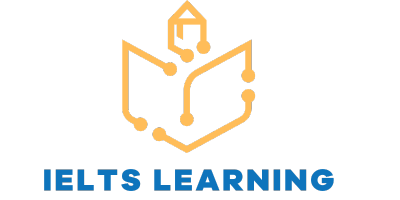Polluted là một trong những từ phổ biến để nói về vấn đề môi trường. Vậy nghĩa chính xác của polluted là gì? Polluted là loại từ gì? Cùng theo dõi bài viết để hiểu rõ hơn về cách dùng cũng như ý nghĩa của từ này và điểm qua một vài các từ đồng nghĩa nhé!
1. Polluted là gì?
Polluted /pəˈluː.tɪd/: Ô nhiễm
Polluted là một tính từ dùng để mô tả môi trường, không khí, nước, hoặc các khu vực khác mà đã bị bẩn bởi chất độc hại hoặc ô nhiễm từ các nguồn khác nhau. Điều này có thể là do hoạt động công nghiệp, xử lý chất thải, hay các nguồn gốc khác gây ra sự ô nhiễm và ảnh hưởng đến sức khỏe con người và môi trường.
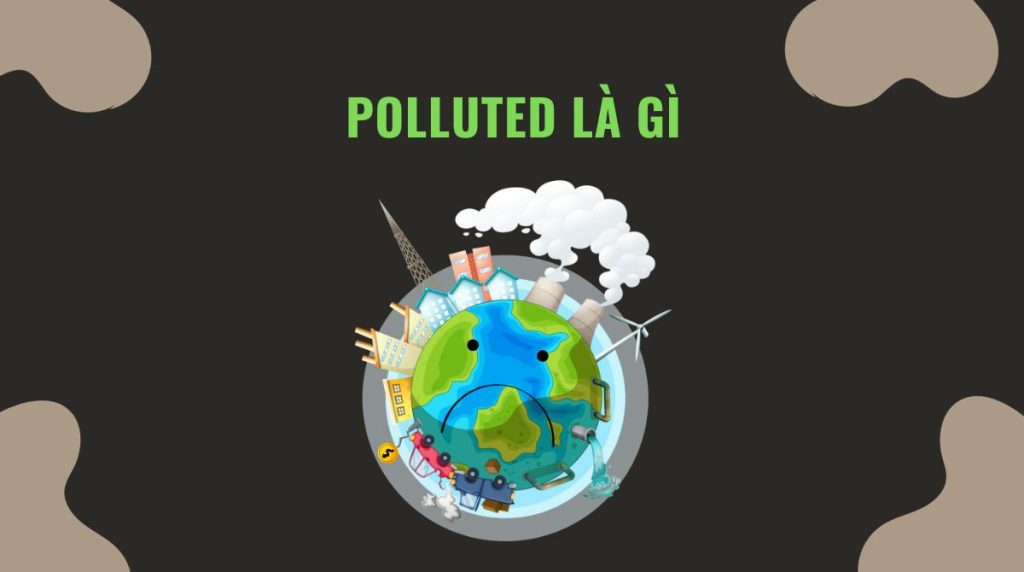
Ví dụ:
Air Pollution (Ô nhiễm không khí):
- Ví dụ: The city’s air is heavily polluted due to the high levels of vehicle emissions and industrial activities. (Không khí của thành phố bị ô nhiễm nặng nề do mức độ cao của khí thải từ phương tiện giao thông và hoạt động công nghiệp.)
Water Pollution (Ô nhiễm nước):
- Ví dụ: The river became polluted after factories discharged untreated wastewater directly into it. (Con sông trở nên bị ô nhiễm sau khi các nhà máy xả nước thải chưa được xử lý trực tiếp vào nó.)
Soil Pollution (Ô nhiễm đất):
- Ví dụ: The agricultural area suffered from soil pollution due to the excessive use of pesticides and fertilizers. (Khu vực nông nghiệp bị ô nhiễm đất do việc sử dụng quá mức thuốc trừ sâu và phân bón.)
Xem thêm:
2. Polluted là loại từ gì?
Như đã nói ở trên, Polluted là một tính từ dùng để nói đến việc ô nhiễm môi trường đất, nước hoặc không khí.
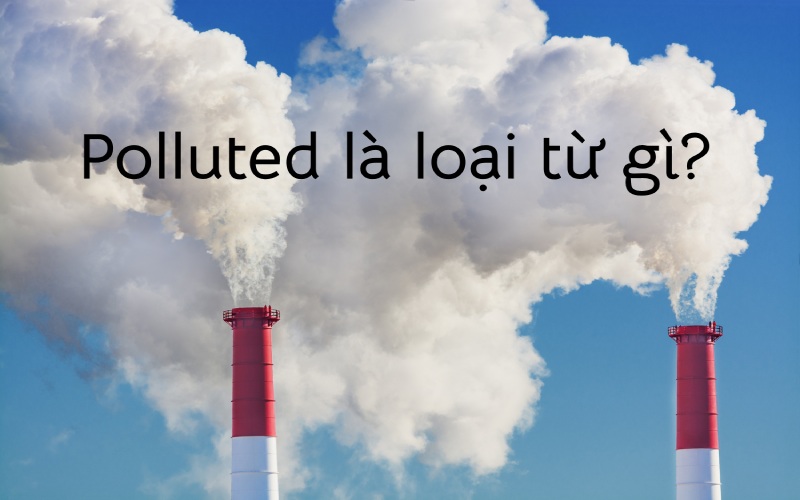
Ví dụ:
- The river water was so polluted that it was unsafe for swimming or drinking. (Nước sông bị ô nhiễm đến mức không an toàn để bơi lội hoặc uống.)
- The air in the city is heavily polluted due to traffic congestion and industrial emissions. (Không khí trong thành phố bị ô nhiễm nặng do tắc nghẽn giao thông và khí thải công nghiệp.)
- Residents avoid swimming in the polluted lake to prevent health issues. (Các cư dân tránh việc bơi lội trong hồ bị ô nhiễm để ngăn chặn vấn đề về sức khỏe.)
- The once clear river now flows with polluted water from upstream factories. (Con sông trước đây trong trẻo giờ đây chảy với nước bị ô nhiễm từ các nhà máy ở phía trên dòng.)
3. Polluted đi với giới từ gì?
Pollute + sth with + sth: làm ô nhiễm thứ gì bằng thứ gì khác.
Ví dụ:
- The industrial discharges polluted the river with harmful chemicals. (Khí thải công nghiệp làm ô nhiễm sông bằng các hóa chất có hại.)
- Factory discharges have been polluting the air with toxic fumes for years. (Khí thải từ nhà máy đã ô nhiễm không khí bằng khói độc hại suốt nhiều năm.)
- Improper waste disposal practices can pollute the soil with hazardous materials. (Các phương pháp xử lý rác thải không đúng cách có thể làm ô nhiễm đất bằng vật liệu nguy hiểm.)
- The oil spill in the ocean has polluted the water with crude oil, harming marine life. (Sự cố dầu tràn ra biển đã làm ô nhiễm nước bằng dầu thô, gây hại cho đời sống biển.)
Xem thêm:
4. Familyword của Polluted
Pollute (động từ): Ô nhiễm, làm bẩn bằng các chất độc hại.
- Ví dụ: Factory waste has the potential to pollute nearby rivers.
Pollution (danh từ): Sự ô nhiễm.
- Ví dụ: The government is working on policies to reduce air pollution in the city.
Pollutant (danh từ): Chất gây ô nhiễm.
- Ví dụ: The smoke from the factory is a major air pollutant.
Polluted (tính từ): Bị ô nhiễm.
- Ví dụ: The river became polluted after the industrial discharge.
Polluter (danh từ): Người hoặc tổ chức gây ra ô nhiễm.
- Ví dụ: Strict regulations are in place to penalize polluters.
5. Từ đồng nghĩa của Polluted
Polluted (tính từ): Bị ô nhiễm, bẩn bởi chất độc hại.
- Ví dụ: The river became polluted after the chemical spill from the factory. (Con sông trở nên bị ô nhiễm sau vụ tràn hóa chất từ nhà máy.)
Contaminated (tính từ): Bị nhiễm chất ô nhiễm, không an toàn để sử dụng.
- Ví dụ: The contaminated food products were recalled from the market to protect consumers. (Các sản phẩm thực phẩm bị nhiễm chất ô nhiễm đã được thu hồi khỏi thị trường để bảo vệ người tiêu dùng.)
Tainted (tính từ): Bị bẩn, có chất độc hại làm mất chất lượng hoặc giá trị.
- Ví dụ: The reputation of the company was tainted after the scandal. (Danh tiếng của công ty bị bẩn sau vụ bê bối.)
6. Từ trái nghĩa của Polluted
Clean: Không có chất bẩn, không bị ô nhiễm.
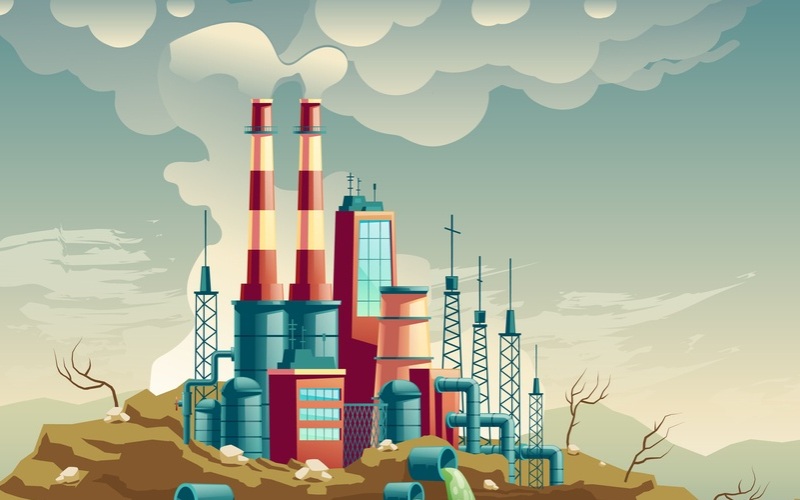
- Ví dụ: The kitchen is clean and well-organized. (Nhà bếp sạch sẽ và được sắp xếp gọn gàng.)
Pure: Không bị làm mờ, không chứa chất độc hại.
- Ví dụ: The mountain spring water is pure and refreshing. (Nước suối núi là tinh khiết và sảng khoái.)
Unpolluted: Không bị làm bẩn hoặc ô nhiễm.
- Ví dụ: The remote island has unspoiled, unpolluted beaches. (Hòn đảo xa xôi có những bãi biển nguyên vẹn, không bị ô nhiễm.)
Clear: Trong xanh, trong lành
- Ví dụ: The sky was clear, and the stars shone brightly. (Bầu trời trong xanh, và những ngôi sao lấp lánh.)
Wholesome: Lành mạnh):
- Ví dụ: A wholesome diet includes a variety of fruits and vegetables. (Một chế độ ăn lành mạnh bao gồm nhiều loại trái cây và rau củ.)
Pristine: Nguyên sơ, nguyên vẹn
- Ví dụ: The pristine forest has never been touched by human hands. (Khu rừng nguyên sơ chưa bao giờ bị chạm vào bởi tay người.)
Untainted: Không bị làm bẩn
- Ví dụ: The untainted beauty of the countryside attracts many visitors. (Vẻ đẹp nguyên sơ của nông thôn thu hút rất nhiều du khách.)
Fresh: Mới, không cũ, không bị ô nhiễm.
- Ví dụ: Freshly picked fruits are available at the local market. (Những trái cây vừa hái tươi mới có sẵn tại chợ địa phương.)
Healthy: Có lợi cho sức khỏe, không gặp vấn đề về sức khỏe.
- Ví dụ: Regular exercise and a balanced diet contribute to a healthy lifestyle. (Tập thể dục đều đặn và chế độ ăn cân đối đóng góp vào một lối sống lành mạnh.)
Pristine: Nguyên vẹn, không bị làm mờ.
- Ví dụ: The pristine beauty of the snow-covered landscape was breathtaking. (Vẻ đẹp nguyên vẹn của cảnh đất phủ tuyết làm cho người ta kinh ngạc.)
Xem thêm:
7. Một số cụm từ khác nói về vấn đề môi trường
Climate Change (Biến đổi khí hậu):
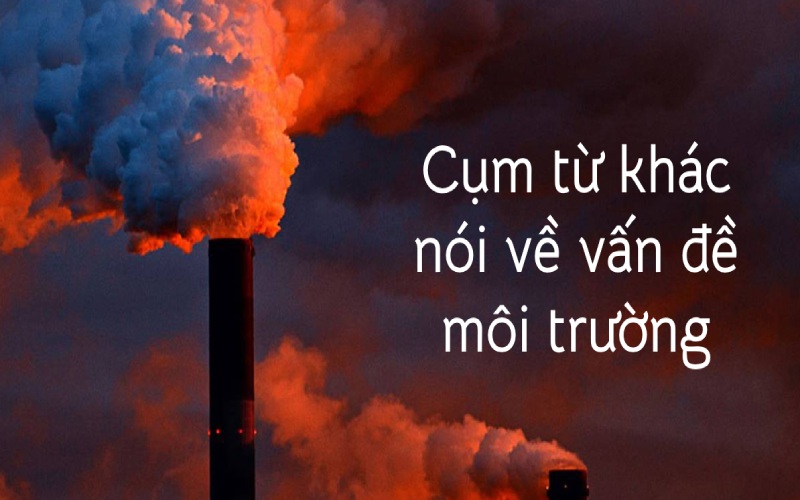
- Ví dụ: Governments around the world are working together to address the challenges of climate change.
Global Warming (Nóng lên toàn cầu):
- Ví dụ: The scientific community is concerned about the consequences of global warming on the polar ice caps.
Renewable Energy (Năng lượng tái tạo):
- Ví dụ: Investing in renewable energy sources such as solar and wind power is crucial for a sustainable future.
Sustainable Development (Phát triển bền vững):
- Ví dụ: Sustainable development aims to meet the needs of the present without compromising the ability of future generations to meet their own needs.
Biodiversity Conservation (Bảo tồn đa dạng sinh học):
- Ví dụ: National parks play a key role in biodiversity conservation by providing a habitat for various plant and animal species.
Environmental Conservation (Bảo tồn môi trường):
- Ví dụ: Efforts in environmental conservation involve protecting natural resources and reducing pollution.
Carbon Footprint (Dấu chân carbon):
- Ví dụ: Individuals can reduce their carbon footprint by using energy-efficient appliances and practicing sustainable transportation.
Deforestation (Phá rừng):
- Ví dụ: Deforestation contributes to the loss of biodiversity and has negative effects on the global climate.
Ocean Pollution (Ô nhiễm đại dương):
- Ví dụ: Plastic waste is a major contributor to ocean pollution, harming marine life and ecosystems.
Greenhouse Gas Emissions (Khí thải nhà kính):
- Ví dụ: Governments are implementing policies to reduce greenhouse gas emissions and mitigate the impact of climate change.
Water Scarcity (Khan hiếm nước):
- Ví dụ: Many regions in the world are facing water scarcity, highlighting the importance of water conservation.
Ecological Footprint (Dấu chân sinh thái):
- Ví dụ: Calculating one’s ecological footprint helps individuals understand the impact of their lifestyle on the environment.
Eco-Friendly (Thân thiện với môi trường):
- Ví dụ: Choosing eco-friendly products and practices promotes sustainability and reduces environmental impact.
Zero Waste (Không rác thải):
- Ví dụ: The zero waste movement encourages individuals to minimize waste production through recycling and composting.
Conservation Efforts (Nỗ lực bảo tồn):
- Ví dụ: Conservation efforts are essential to protect endangered species and preserve natural habitats.
Như vậy, qua bài viết này, bạn đã hiểu rõ hơn về polluted là loại từ gì, các family word cũng như các cụm từ phổ biến khi nói về vấn đề môi trường. Hy vọng những chia sẻ trên đây của IELTS Learning có thể giúp bạn vận dụng tốt các kiến thức này vào thực tế.
